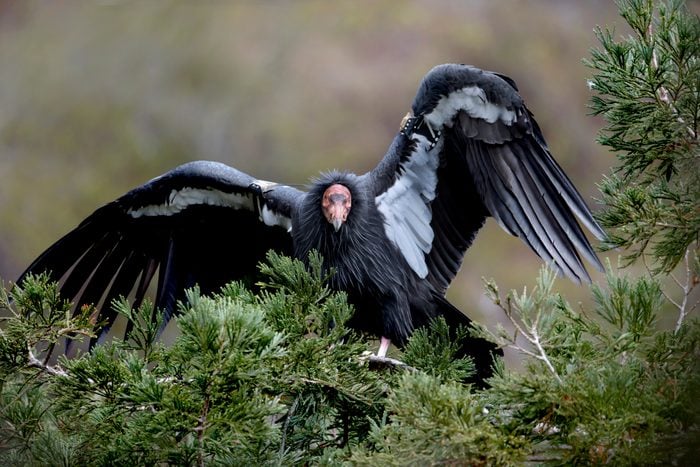
Multiple Types of Vultures Live in the U.S.
Three types of vultures live in the United States—the turkey vulture, black vulture and California condor (which is a vulture bird, despite not having that term in its name). Turkey vultures, named for their bald heads and general resemblance to turkeys, are the most abundant of the trio. They’re found from southern Canada to southernmost South America. While the black vulture is most abundant in the Southeast, its range continues to expand northward.
There are more than 20 species of vulture worldwide. Despite many resemblances, the New World vultures of North and South America aren’t closely related to the Old World species of Europe, Asia and Africa. Some folks refer to them as buzzards, but in the Old World, true buzzards are more similar to North American hawks than vultures.
Discover 9 types of hawks you should know.
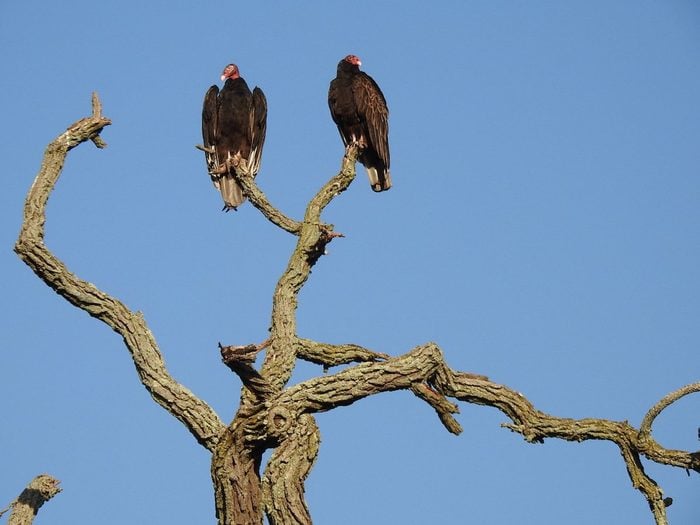
Turkey Vultures Have a Gross Defense Method
It’s best to stay on a turkey vulture’s good side. If distressed or annoyed, this bird vomits its food up to 10 feet away in a tactic that deters predators, helping the adult vulture bird and its young survive.
Are grackle birds bullies, or are they beauties? Discover everything you need to know about another bird with a bad reputation.
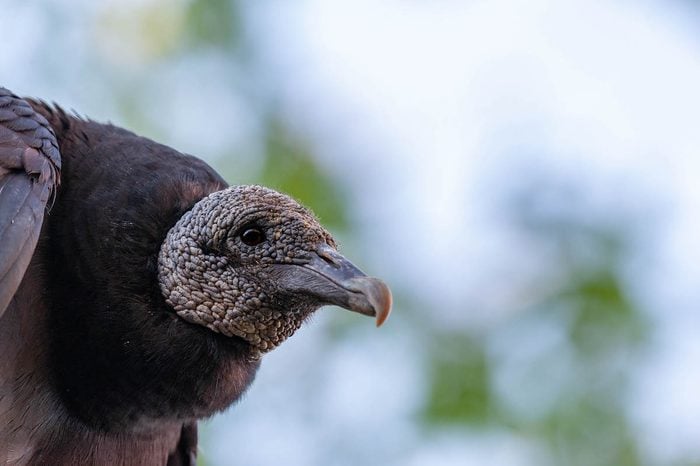
Here’s Why Vultures Don’t Sing
Black vultures don’t sing, chirp or call like other birds, since they lack a vocal organ. Instead, they communicate in four other ways—hissing, yapping, grunting and cooing.
Besides the black vulture bird, discover more black birds that are always dressed for Halloween.
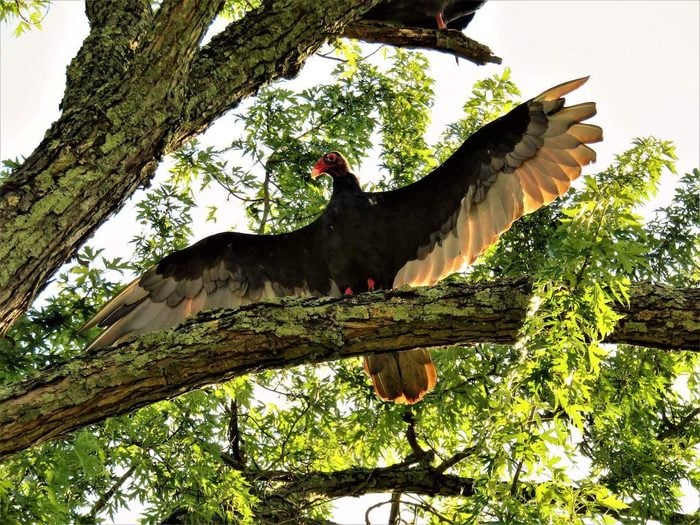
Flying With Finesse
Like a lot of us, vultures love catching some rays. They often perch with their wings spread to soak up the sun. Look for them atop buildings, in treetops or even standing on the ground. Communal roosting is common—you’ll often see a dozen or more birds gathered in one spot. Once the air thermals have heated up, vultures take to the skies, where they show off how graceful they are as they coast beneath the clouds.
With their 10-foot wingspans, California condors can cruise great distances in search of food. Turkey vultures soar with wingtips pointed up in a shallow V, while black vultures fly higher overhead, hoping to crash any potential roadkill party.
Learn all about bird wings and flight feathers.
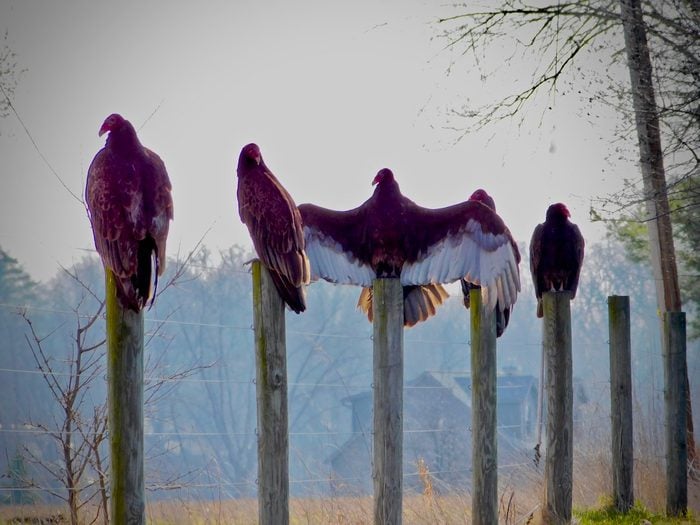
Vultures Stick Together
It takes around 90 days for black vulture fledglings to fly. Even then, they don’t venture far away. They stay with their parents in the same social group for years.
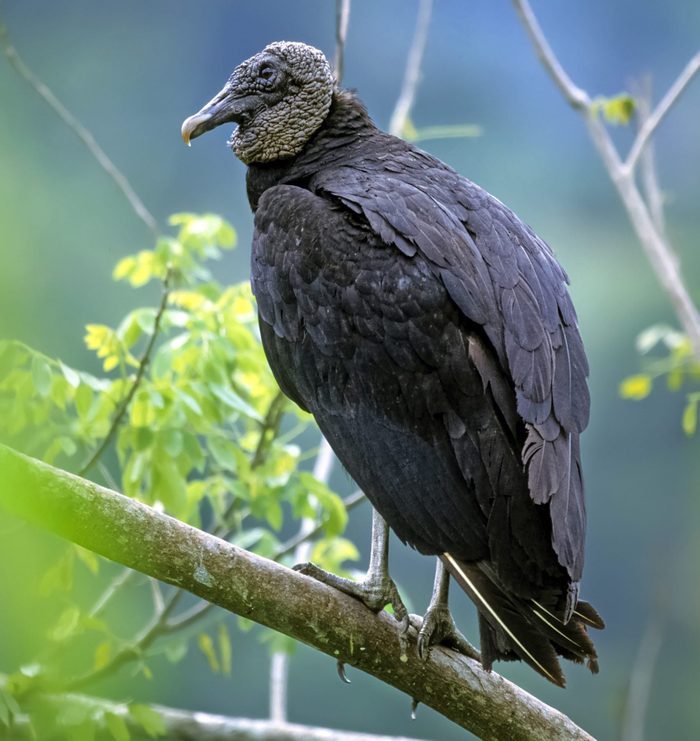
Vultures Use Their Senses to Find Food
Turkey vultures are known for their keen sense of smell, a rare trait in the bird world, and they soar through the skies sniffing for their next meal. Their sensitive nostrils can even detect potentially dangerous gas leaks. (Animal corpses and gas tend to have similar chemical odors.) Black vultures and California condors depend more on keen eyesight to locate dinner.
Although it may seem a little unsettling that these birds eat dead animals, without them our ecosystem would be in very bad shape. Thanks to their strange diet, these scavengers clean up the environment and get rid of carcasses that would otherwise spread disease. Vultures have superpower-like immune systems and seem resistant to salmonella, botulism, cholera and even anthrax. And despite appearances, they’re very hygienic because of their bald heads, which minimize the chances of bad bacteria collecting on them while they eat.
Learn more about wild bird diseases.
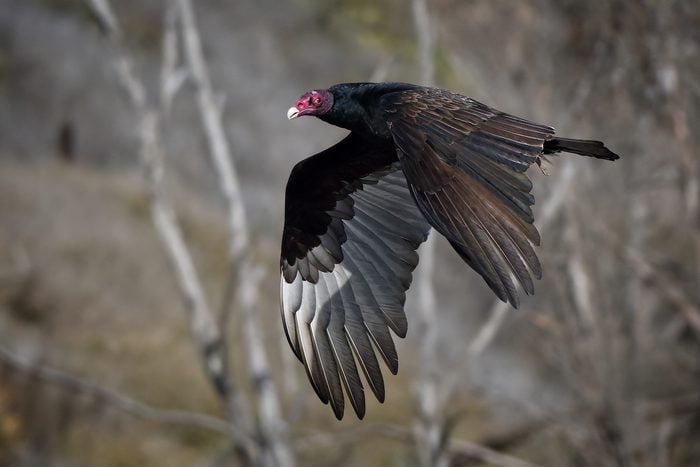
How Long Do Vultures Live?
While many birds have an average lifespan of a few years, turkey vultures usually lead much longer lives, often reaching age 20. The oldest turkey vultures recorded were almost 25 years old.
When you’re done reading about vultures, expand your knowledge of another commonly misunderstood bird: the humble pigeon.
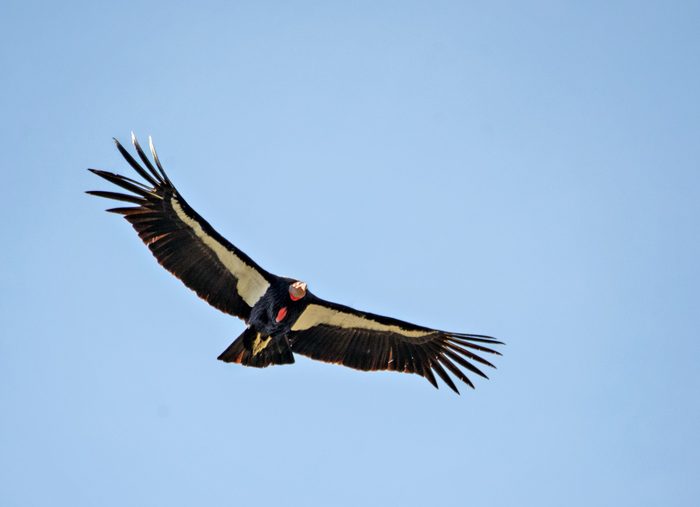
California Condors Are Endangered
Here’s a vulture bird conservation story worth celebrating. California condors went extinct in the wild in 1987 because of lead poisoning (from eating animals killed with lead bullets), poaching and habitat loss. But these birds have bounced back, thanks to captive breeding programs. Condors have been released in areas of the Southwest including the Big Sur area of California, Zion National Park in Utah and the Grand Canyon in Arizona.
Next, check out 7 interesting bald eagle facts.

